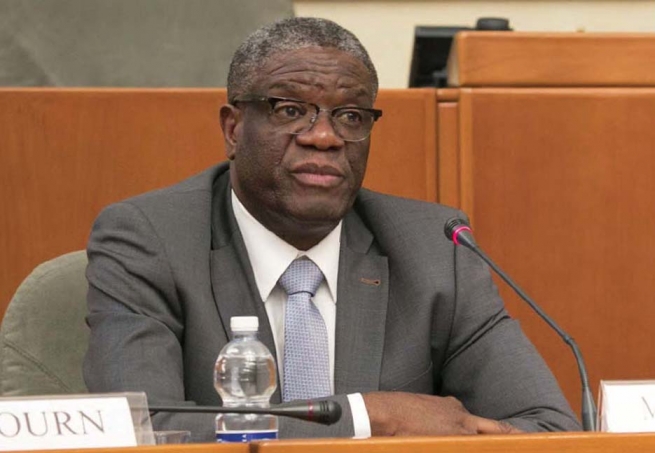Born on 1 March 1955 in Bukavu, South Kivu, as a child he perceives the conditions of objective inferiority in which women live and are subject to. "When I accompanied my father to the hospital to visit the sick, I realized that the female patients received insufficient care and often died after giving birth. I wondered what I could do for them."
He studied Medicine at university and specialized in Gynecology and Obstetrics. He refused the mirage of the academic career's allure and returned to Bukavu to commit himself to fighting for the elimination of violence against women. "The eastern part of the Congo," he explains, "could transform the country into one of the richest in the world. For decades, however, it has been afflicted by conflicts and violence that reap victims, especially among women and children ... The body of women has become a battlefield and rape a weapon of war, which not only violates the body of its victims, but the psychology and the cohesion of the entire community."
Over the last twenty years in the Democratic Republic of the Congo more than 1,800,000 women have been raped and marked for life: this during the two civil wars (1996-2003), then during the conflict between North and South Kivu (2004-2009), and also today, with the continuous violent raids by various armed groups.
"To 'convince' the communities not to oppose resistance," continues Mukwege, "the aggressors vent their rage against women: they rape them in public, often in front of her husband or children, and torture them almost always with objects that cause them serious injuries to the genital apparatus."
In 1989, to provide care and relief to South Kivu women, Mukwege set up a maternity hospital ward in Lemera, but it was destroyed. Without losing heart, he buildt another in Bukavu, his hometown, but it too is short-lived. With confidence and tenacity he builds yet another - always in Bukavu - the "Panzi Hospital", which since 1999 has hosted and cared for over 50,000 women victims of sexual violence.
"I am like a torn handkerchief: one has to take the threads and re-tie them one by one." Thus Mukwege describes the physical and psychological conditions of the women he cares for. And he concludes: "I do not know how many times, observing them in their beds of pain, I have despaired and asked myself: 'How will they recover?'. And every time I discover that they stand not for themselves, but for their families and for their children. I think we men have a lot to learn from them."


